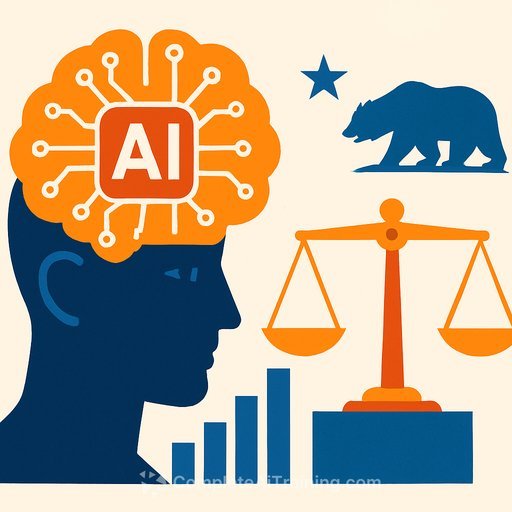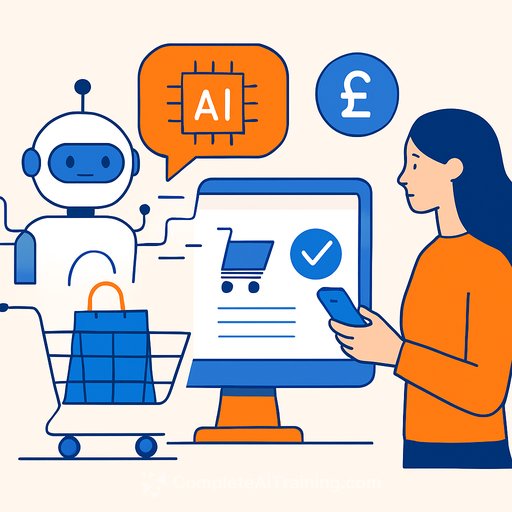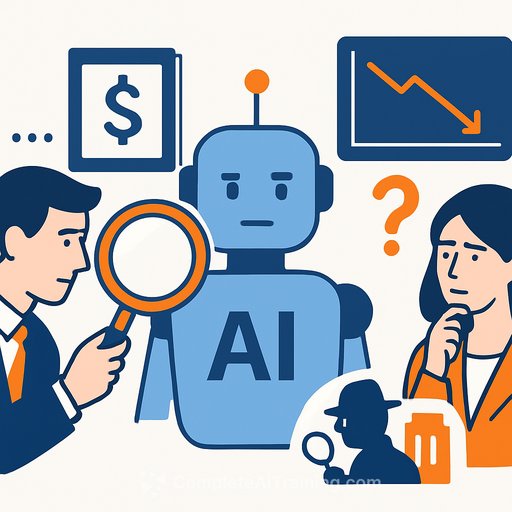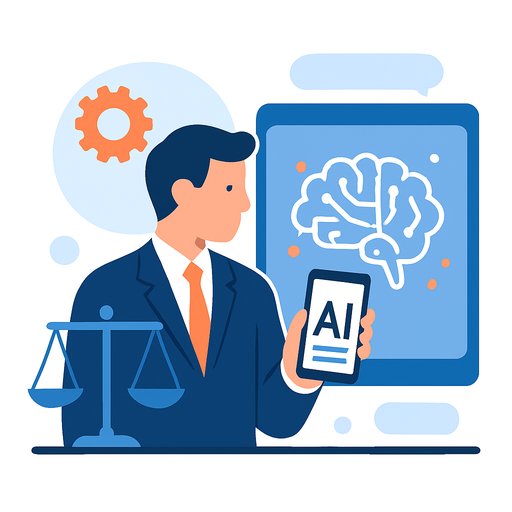AI In Courts: Tools, Not Judges
Artificial Intelligence is moving into case management, research and admin work. It will not replace the human role in judicial decision-making. Credibility, equity and constitutional values remain human work.
That was the core message from Malaysia's Chief Justice, Datuk Seri Wan Ahmad Farid Wan Salleh, at the 2025 Selangor Bar Law Conference. The question is no longer whether AI will change practice, but how we ensure it serves justice instead of substituting it.
Why This Matters
AI accelerates routine tasks and surfaces patterns, but it does not carry constitutional responsibility. Judicial reasoning demands context, empathy and value judgments that data cannot fully express. The bench must retain final say over liberty, rights and remedies.
Non-Negotiables For AI Use In Legal Practice
- Accountability: A human decision-maker is responsible for outcomes. No delegation of blame to a model or vendor.
- Fairness and bias control: Test for disparate impact; document mitigation steps; reject models that fail.
- Transparency: Disclose if AI assisted an analysis; provide human-understandable reasons in decisions.
- Human oversight: Keep a human in the loop for all rights-affecting recommendations.
- Data integrity: Use verified legal sources; prevent contaminated or hallucinated citations.
- Confidentiality: No client or case data in public models; use enterprise instances with strict controls.
- Proportionality: Match model risk to task risk; admin tasks allow more automation than adjudication.
- Constitutional alignment: Protect Part II liberties, separation of powers and the rule of law in every deployment.
Practical Steps For Chambers, Firms And Courts
- Adopt an AI policy: Scope of use, prohibited tasks, disclosure rules, and escalation thresholds.
- Procurement checklist: Model provenance, training data sources, bias testing, security posture, uptime SLAs and audit logs.
- Secure architecture: Private deployments, role-based access, encryption at rest and in transit, data retention limits.
- Evidence-grade workflows: Retrieval-augmented generation with authoritative databases; preserve references and timestamps.
- Validation gates: Second-lawyer review for AI-assisted drafts; mandatory cite-check and fact-check.
- Red-teaming: Periodic adversarial testing for leakage, prompt injection, and system prompt exposure.
- Records: Keep audit logs of prompts, versions and human approvals for accountability and appeals.
- Training: Teach prompt discipline, bias pitfalls, confidentiality hygiene and limits of model outputs.
- Incident response: Clear playbook for data exposure, erroneous filings and vendor breaches.
What To Delegate To AI vs. What To Retain
- Appropriate to delegate: Scheduling; summarising transcripts; first-pass research with source citations; drafting admin letters; formatting; discovery prioritisation.
- Retain for humans: Findings of fact; credibility assessments; sentencing; bail; constitutional review; privilege calls; ethical judgments.
The Constitutional Compass
In times of fast legal change, constitutional values are the guardrails. Fundamental liberties, institutional checks and the requirement for reasoned decisions do not shift with technology.
For external reference on responsible AI principles, see the OECD AI Principles here and the Council of Europe AI Framework Convention here.
Risk Scenarios To Avoid
- Automated determinations that affect liberty or rights without a human decision-maker.
- Undisclosed AI assistance in submissions or judgments.
- Use of public chatbots with confidential or identifying information.
- Unverified citations, fabricated authorities or misquoted precedents.
- Relying on vendor claims without independent testing and contractual controls.
Res Nova, With Continuity
Law is a living system. It must evolve to serve each generation while staying anchored to enduring principles of justice. AI can compress time, but it cannot replace judicial wisdom.
Firms and courts that adopt AI with discipline will raise quality and reduce delay, without surrendering judgment. If your team is building foundational AI literacy, explore curated options by job role here.
Your membership also unlocks:





